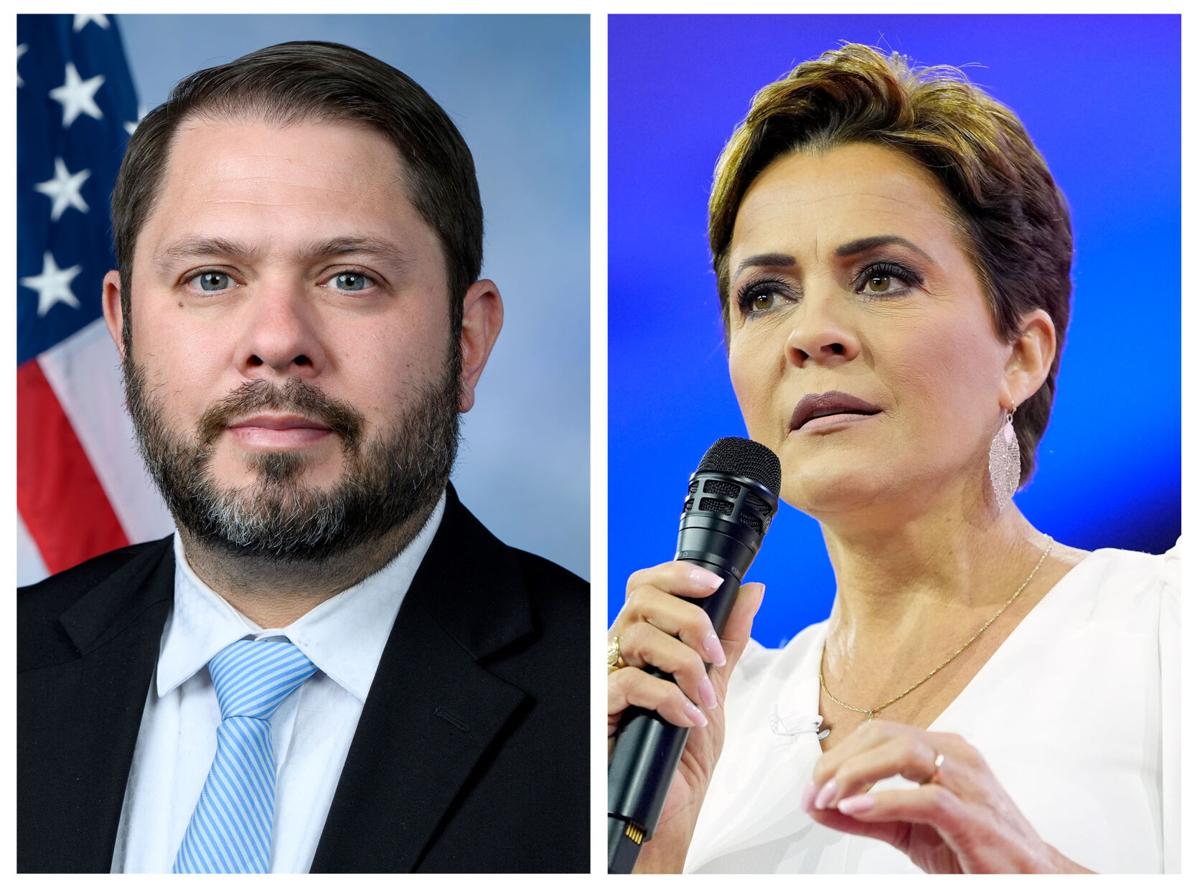PHOENIX — A Senate panel is launching an investigation into why the Citizens Clean Elections Commission won’t let the Green Party nominee for U.S. Senate participate in an upcoming televised debate.
Sen. Jake Hoffman, who chairs the Republican-controlled Government Committee, is demanding answers about what he said is a new rule. He said it says only candidates who pick up the support of at least 1% of all votes cast in all primaries can participate in the general election debate for statewide and federal races.
That would total about 12,400 votes in the race for the U.S. Senate. But Eduardo Quintana tallied just 282 votes in the Green Party primary.
In fact, even if he had picked up the votes of everyone registered with the Green Party he would have tallied only 3,344.
Chris Kline, director of the Arizona Media Association whose members will be airing the debates, said it makes sense to limit the available time to candidates whose primary tallies showed they have a reasonable chance of winning. Adding in everyone else, he told Capitol Media Services, would dilute the ability of viable candidates to get their messages across in the 56 available minutes.
Nor was Kline persuaded by the limited number of Green Party adherents.
He pointed out that in Arizona’s open primary system, voters who are not affiliated with any recognized party are free to participate in the primary of any party. With nearly 1.4 million unaffiliated voters in the state, Kline said there were opportunities for Quintana to find support outside his own party.
There is a separate legal question, however.
Hoffman, a Queen Creek Republican, says the Clean Elections Commission, a state agency that is sponsoring the debate, never got the rule limiting who could participate formally reviewed under the Administrative Procedures Act. That process, he said, would have given the Green Party a chance to object — particularly given that Libertarian Party candidate for Senate Marc Victor was invited to participate in the 2022 debate along with Democrat Mark Kelly and Republican Blake Masters.
Hoffman, in a letter Thursday to the Clean Elections Commission, is demanding answers by Sept. 12 about why procedures for amending the rules were not followed. The debate is scheduled for Oct. 9.
What Hoffman and his committee can do about any violation is unclear. Hoffman told Capitol Media Services he never mentioned the possibility of trying to stop the debate from going on without Quintana.
There was no immediate response from the commission.
Questions about the rules aside, the issue has political overtones.
Quintana’s bid for participation is being supported by Republican contender Kari Lake.
“The Green Party’s nominee for U.S. Senate Eduardo Quintana will be on the ballot in November,” she said in a prepared statement. “I believe we need to ensure that every candidate and every voter is heard and respected.”
There may be some self-interest in that, given what could be a close race with Democrat Ruben Gallego: It is generally understood that Green Party candidates take votes from Democrats.
Gallego is not calling for Quintana’s inclusion.
“Kari Lake agreed to this debate weeks ago, and now that she’s getting cold feet she wants to change the rules,” said Gallego campaign spokeswoman Hannah Goss. She said Gallego looks forward to participating “under the rules that Clean Elections and the Arizona Media Association established.”
The new rule about who is in and who is not comes on the heels of a change in how Clean Elections handles debates.
Until this year there was an agreement with KAET-TV, the Phoenix PBS affiliate, to host and air them, with other stations free to pick up the feed. The rules in effect said the only people who could not participate in a general election debate were write-in candidates.
But the Clean Elections Commission ended that practice after KAET agreed to give Democratic gubernatorial contender Katie Hobbs time of her own after she refused to participate in the official 2022 debate with Lake, the Republican candidate for governor.
The new arrangement is with the much broader Arizona Media Association which consists of broadcast and print outlets.
Kline said his group and commission staffers studied prior debates in an effort to improve them.
The decision was made to allow multiple candidates to participate in each party’s pre-primary debate. But they decided that when it came to the general election, there should be a threshold to qualify, based on level of primary support, to preclude having multiple candidates on the stage eating up time.
He said such a standard is consistent with rules adopted for federal debates and in other states.
But there’s also a financial consideration: Kline said extending the debate to 90 minutes to accommodate multiple candidates was a non-starter with the commercial stations.
“An hour was basically the sweet spot of the maximum amount of time that we could convince all the media partners to give up for these debates,” he said.
“These are commercial-free debates,” Kline explained. “So we’re asking TV and radio stations to, in many cases, actually lose money to do these debates and make a financial investment in the important stuff. Had we pushed that to 90 minutes I don’t think we would have the accessibility in order to get these debates on all TV stations and have the radio time.”





